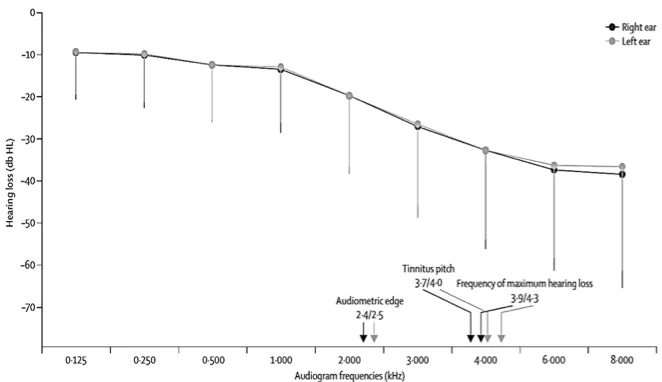Research Overview
Tinnitus, also known as the phantom auditory perception; perceiving sound in the absence of an external acoustic stimulus, becomes one of popular sense organ disorders. According to the report from U.S. and Western Europe, there are at least 70 million chronic tinnitus patients in EU. Moreover, 10~15% of adults suffer chronic tinnitus and 1% of them suffer severe enough to have a significant adverse effect on their lifestyle and quality of life.
Hearing loss is known as the main cause of tinnitus. In this sense, a majority of tinnitus patients are the old since hearing loss gets worse as the people get older. Therefore, tinnitus treatment is traditionally aimed to recuperate the patient’s hearing ability. Therapies using hearing aid are adopted to handle the hearing loss based on neuroscientific backgrounds.
Hearing loss is known as the main cause of tinnitus. In this sense, a majority of tinnitus patients are the old since hearing loss gets worse as the people get older. Therefore, tinnitus treatment is traditionally aimed to recuperate the patient’s hearing ability. Therapies using hearing aid are adopted to handle the hearing loss based on neuroscientific backgrounds.
This project is aimed to develop a novel tinnitus treatment method. This method considers a preference of each patient as well as recovering the hearing function for both better treatment effect and therapy compliance. To this end, below techniques are adopted:
•
Functional imaging
•
User preference based music recommendation
•
Audio signal processing
•
Computational modeling between musical features and stimulated brain regions
Using techniques listed above, novel method can provide patient-tailored treatment and maximize remedial value using music with personal preference.
Project Members
•
Kyogu Lee, Kyungmyun Lee (Professor @ SNU)
•
Jaejin Song (Professor @ Bundang SNUH)
•
Hyunseok Choi, Sungkyun Chang, Jihye Chang (Researcher)
•
Taehoon Kim, Yoonchang Han, Subin Lee, Gwangseok Ahn (Ph.D. student)
•
Seungyeon Rhyu, Donmoon Lee (Master’s student)
Funding Agency
Ministry of Science, ICT and Future Planning

